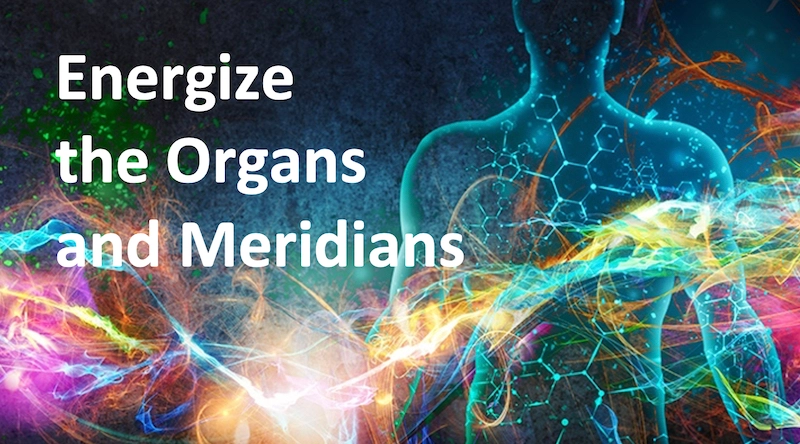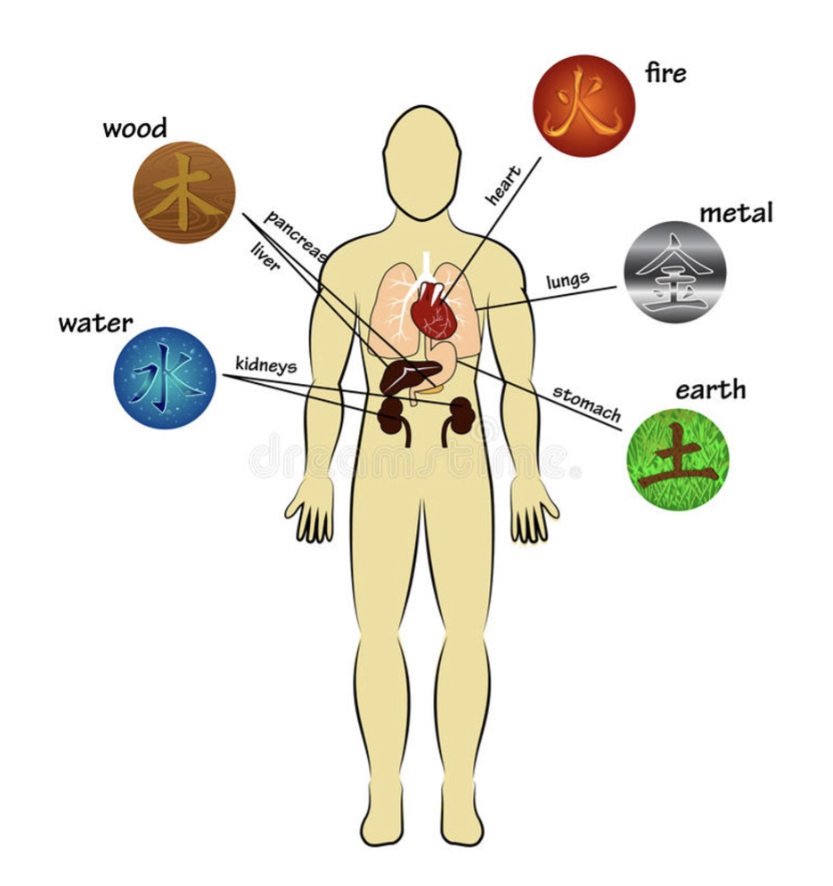Spirit of the Organs
Science and Soul Behind Energize Organs and Meridians QiGong

by Dr. Gayl Hubatch, OMD, LAc

What if you had a direct communication with your internal organs? You could empower yourself through knowing that the body does talk while building an awareness of how to interpret its messages. Wow!
Traditional Chinese medicine (TCM) describes an essence, a spirit or soul of each of the main yin organ systems. The heart is considered the master or monarch of all the organ systems. In the meridian system, the heart also includes the circulatory system the blood vessels.
“Shen resides in the heart” is a common statement in both acupuncture and qigong practices. Shen refers to spirit, consciousness. The heart stores the spirit which is circulated in the blood. I love this phrasing because it gives an aliveness to the heart and blood system beyond just being a pump and vessels with liquid that feeds the tissues. This quality of aliveness is what we can build with qigong practice. Breath awareness with intentional movements awakens the spirit which can bring us deeper into the mysteries of life. A person that practices energy exercises like qigong, tends to have a lightness about them. This is due to qigong breath and movement practices opening subtle pathways by connecting the three regulations (Jahnke, 2010). It is more than just increasing blood circulation, although qigong does this too, qigong also builds self-knowledge. Interoception is the collection of senses understanding the internal state of the body. (Wikipedia, 2023)
When we are aware of our organs as alive and impressionable entities, the sensations we feel from the body can become information we can use with intelligence. For example, If I know my blood is connected to my spiritual nature, as well as having a function to circulate information into my tissues; muscles, nerves, etc. then I’m going to make choices (perhaps choose healthful foods and exercises) to enhance that well-being. This is a mindful approach to lifestyle.
As a HeartMath trainer, I also recognize the science behind this theory. Heartmath Institute researchers have found the heart to be the main organ in the body that can entrain or “teach” other organs to function more efficiently as a whole. We call this coherence.
“Research in the field of epigenetics suggests that our thoughts, emotions, and experiences can significantly impact the expression of our genes and ultimately, our health and well-being…. HeartMath Institute researchers discovered that as we practice heart coherence may hold the key to opening up new potentials and encourages new possibilities for self-empowered healing.” (Heartmath Institute, 2023)
Can we consciously affect our gene expression? I believe the answer is yes with meditative practices that build interoception. When we have the ability to identify and understand internal signals in subtle ways, we cultivate Qi awareness. Practicing qigong, we build and balance subtle internal signals. Organ meridian qigong connects specifically to internal organs. Each yin organ holds an aspect of what we call soul. Here is a brief summary from Traditional Chinese Medicine (TCM) of organ soul theory (Hubatch, 2012):

Heart—Shen—spiritmind—Fire element
Shen is the spirit nature that brightens the mind and body, pure consciousness. Spirit animates the senses and frees the heart of earthly restraints. Spirit is light and brings light to the system. It is a spark that cannot be turned off yet can be dimmed or tainted. The capacity of Shen is to bring forth the light of consciousness and reason. Ideas flow easily when Shen is at play. Creativity and love are the natural capacities of the heart.
Spleen—Yi’ (pronounced ee)—intellect—Earth element
Yi’ resides in the spleen with the soul’s recognition of an individual existence. It is responsible for thinking, studying, concentration, and focus. This aspect of soul knows the boundary between what is self and non-self. It is the capacity to change from an individual identity to the source of creative potential with the ability to be at peace. Yi’ also corresponds to memory that is linked to the heart and kidney meridians as well. Yi’ is the higher mind which moves a person from being a victim to creator. Encompassing a larger perspective, Yi’ is the intuitive level of personal power. Knowing when to act or remain silent.
Liver—Hun (pronounced hoon)—the ethereal soul—Wood element
Hun links the intellectual mind with the spiritual soul. Hun, like the branches of a tree, moves the mind outwardly toward growth potential. Hun resides in the liver, which influences planning and decision making (linked to the gall bladder meridian). When the liver functions are strong and clear, the blood chemistry is stable, and emotions express easily. Qi flows smoothly through the body and mind when Hun is at rest.
Kidneys—Zhi’ or Chih’—higher Will—Water Element
Kidney is Zhi – Will, this is will in a primal sense, a deep trust in life. Zhi is the subtle aspect of Will that allows this deep trust in life and self, which is aligned with higher intention. Zhi is willpower that allows truth to emerge instead of forcing your will onto someone or something. There is power in knowing yourself and trusting your values to carry you through life’s changes. The spiritual aspect of kidney transforms fear into standing your ground without an attitude. The impulse to run or defend is no longer tracking through the nervous system. This demonstrates a balanced autonomic nervous system!
Lungs—Po’—the Corporeal Soul (of the body)—Metal or Air element
Po’ resonates with awareness that change is the natural expression of life. Through breathing, we relate to the external environment by letting in and letting go, inhaling and exhaling. Skin is a membrane that separates the inner and outer environment. The skin holds all the sense organs—eyes, ears, nose, lips, and sense of touch. We can see, hear, taste, touch, and smell because we have skin and are in relationship to the environment. Po’ is the animistic nature of the soul connecting to life in a most fundamental way, the corporeal soul. Just as a fish lives in water and ‘breathes’ the water, we live in air and breathe air. The skin, which also breathes, acts as a membrane to protect and support the body. The lungs govern the skin and allow circulation of wei qi, defense energy.
These are the main yin organs of the body serving to regulate body, mind, and spirit! Energize the Organs and Meridians course offers more information on the physiology of these organs and specific qigong practices to assist in regulating the organ meridian functions. Internal organ systems have many layers of function. Qigong practice can affect all these layers in positive and life-enhancing ways.
Visit the following page to learn more or register for the course
(Live Online via Zoom Saturday, July 22):
https://www.healerwithinfoundation.org/energizeorgansmeridians
References:
HeartMath Institute. Video: The Gene-ius Within: Unlocking the Beneficial Effects of Heart-Focused Intention on Gene Expression. 2023
Hubatch, Gayl, Fabric of the Soul, 8 Extraordinary Vessels. Outskirts Press 2012
Jahnke R, Larkey L, Rogers C, Etnier J, Lin F. A comprehensive review of health benefits of qigong and tai chi. Am J Health Promot. 2010 Jul-Aug;24(6):e1-e25. doi: 10.4278/ajhp.081013-LIT-248. PMID: 20594090; PMCID: PMC3085832.
Wikipedia https://en.wikipedia.org/wiki/Interoception (Accessed May 17, 2023)
|